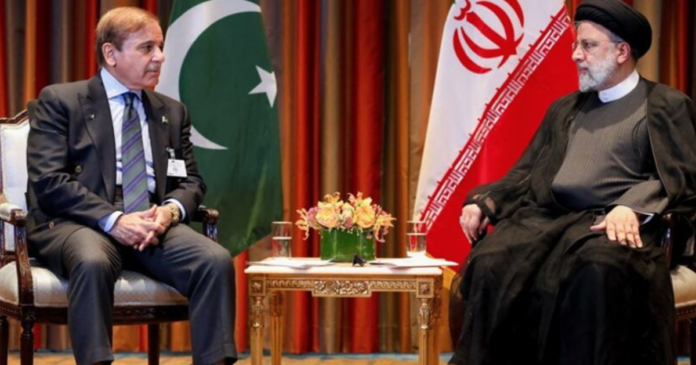The already complex relationship between Iran and Pakistan has been further complicated by the recent missile and airstrikes launched by both nations on each other’s territory.
Iran, the center of the Shia crescent, supports a number of Shia non-state entities, including the Palestinian Islamic Jihad and Hamas in the Gaza Strip, as well as Sunni groups like the Mahdi’s Army in Iraq, the Houthis in Yemen, and Hezbollah in Lebanon. Pakistan is a nuclear-armed rogue state that has a track record of secretly transferring nuclear weapons to authoritarian nations worldwide.
Iran, a civilization spanning millennia, and Pakistan, which was a part of British India until the Indian subcontinent was divided in 1947, have a shared historical heritage that includes the Persian and Macedonian empires as well as the contemporary issues of sectarian divisions and proxy wars that they wage for political, ideological, and even commercial gain.
The two nations have built a tapestry of mutual respect and animosity. Deeply ingrained hostility and geopolitical pressures exist beneath the surface of cultural exchanges and religious affinity, continuously putting these neighbors’ brittle relationships to the test. The latest clashes between them demonstrate their rising hostility, which could have a big effect on the stability of the West Asian subregion that consists of Iran, Pakistan, and Afghanistan.
In the past, ties between Pakistan and Iran weren’t as tense. The Shah of Iran, Mohammad Reza Pahlavi, was the first head of state to pay an official state visit to Pakistan; in fact, imperial Iran was among the first nations to recognize Pakistan’s independence. Iran and Pakistan were both allies of the American bloc, and the US encouraged their growing bond because it was eager to keep the Soviet Union in check.
Iran and Pakistan signed a friendship treaty in the 1950s, and Iran actively backed Pakistan during the 1965 and 1971 India-Pakistan conflicts. In fact, Pakistani airplanes were stationed at Tehran Airport during the 1971 conflict in case West Pakistan collapsed similarly to the East.
But during the Iranian Revolution of 1979, the relationship experienced a drastic transformation. Ayatollah Ruhollah Khomeini’s newly established theocratic regime of Iran nationalized its oil riches and drove out all American and European businesses doing business there. This compelled Pakistan, an ally of the United States, to impede the development of its ties with Iran.
Iran helped Shia militants against the Soviets following the Soviet invasion of Afghanistan, while the West and Pakistan backed Sunni insurgents. Following the withdrawal of the Soviet Union, the Taliban, who were supported by the West, seized control of Afghanistan. On August 8, 1998, they invaded the Iranian consulate in Kabul, killing eight diplomats and one Iranian journalist in what became known as the Mazar-e-Sharif massacre.
Pakistan, which actively funds the Taliban for its own geopolitical purposes, strained ties with Iran as a result. The ongoing struggle between the two nations in a different theater—Baluchistan—complicated matters further.
Pakistan and Iran split apart the region known as Baluchistan. It has abundant natural resources, including chromites, copper, gold, and natural gas. Both nations have made considerable use of these resources.
Nevertheless, the province of Balochistan in Pakistan has the worst poverty rate in the country, at 65 percent, despite possessing natural resources valued at over $1 trillion. Comparably, the poverty rate in Iran’s Sistan and Baluchistan provinces is almost 80% higher than the country’s average of 28%.
Separatist tendencies have become stronger in the area as a result of this neglect. In order to deflect attention from its province of Balochistan and appease its backers—Saudi Arabia and the United States, both of which have tense relations with Iran—Pakistan has been funding Sunni-Baloch jihadist organizations like the Jaish ul-Adl in the eastern part of Iran. The Baluchistan Liberation Front (BLF) and the Baluchistan Liberation Army (BLA), which are fighting on the Pakistani side, have received help from Iran in retaliation.
Following the terrorist attack on Israel by Hamas on October 7, 2023, and Israel’s subsequent pulverization of Gaza and killing of its civilian population as retaliation, this geopolitical struggle has gotten worse.
Throughout all of West Asia, this violence has expanded. Israel has carried out airstrikes in Lebanon in retaliation to the attacks by Iran’s proxies, Hezbollah and the Houthis, while the US has targeted Houthi bases. Many extremist groups, including the Islamic State and the Pakistan-based Jaish al-Adl, have exploited the ongoing conflict to carry out terrorist strikes in Iran.
Iran launched airstrikes in Syria and Iraq in retaliation, claiming to be targeting Israeli positions and the Islamic State, sensing that it was surrounded. Additionally, it has carried out airstrikes against the Jaish al-Adl group in Pakistan’s Baluchistan area. In response, Pakistan launched its own retaliatory airstrikes in the Iranian province of Sistan-Baluchistan against the BLA and BLF.
The continuing proxy war in West Asia can expand to a new front as a result of the cross-border airstrikes between Iran and Pakistan. US sanctions have severely damaged Iran’s economy, and the Iranian people’s discontent with the Mullah regime is growing.
In a similar vein, Pakistan is also experiencing economic difficulties and a great deal of dissatisfaction among its citizens toward the military administration. Pakistan is encircled by nations with whom it maintains hostile relations.
The likelihood that the two nations will decide to intensify their confrontation is very high, as they both feel threatened by both internal and external players. China, which views Pakistan as a client state and in March 2021 announced a 25-year strategic alliance with Iran, has remarkably remained silent.
Pakistan’s three front challenge—a hostile Iran, an increasingly belligerent Taliban in Afghanistan, and of course, India—offers cold comfort to India, which has had to deal with a two-front problem with Pakistan and China. But considering how quickly things de-escalated with Iran, India would be better off keeping its options open and its powder dry.



